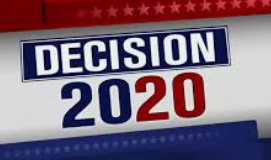We see a new
iteration of the n-word at the forefront of our current political
discourse. For
anyone who leans
progressive, as each of us does to varying degrees, the last few weeks haven’t
been pleasant. We’ve seen plenty worthy of being unhappy about recently:
·
An unending campaign in some states
that would take us backward on electoral fairness
through voter suppression laws and redistricting plans that threaten (perhaps assure) permanent
Republican rule despite demographic change that should swing legislative
representation toward Democrats.
· The dwindling stature of the Biden
presidency, burdened as it is by falling poll
numbers and bickering among Congressional Democrats that imperils his domestic
agenda and the party’s prospects in the 2022 midterms.
·
Relative public indifference to
Republican obstruction of a full-fledged investigation into
the January 6 attack on the Capitol, amid hints the Biden Justice Department may
go easy on some insurrectionists out of a misguided fear of further
radicalizing them; and
· Misogyny, racism, and homophobia at high
levels of the nation’s most popular professional sport.
Given
this list, we almost find ourselves asking, “Other than that, Mrs. Lincoln, how
was the theater?”
Historical Parallels
We
acknowledge the nation has found itself in such a dark place before. About the
tumult of 1968, journalist David
Halberstam wrote that he
saw
the country on the “verge of a national nervous breakdown” because of Vietnam
and racial turmoil. Perhaps we’re not there now, but disarray abounds. Many
supporters of former President Donald
Trump appear willing to abandon democratic norms and
institutions so he can wield power again.
country on the “verge of a national nervous breakdown” because of Vietnam
and racial turmoil. Perhaps we’re not there now, but disarray abounds. Many
supporters of former President Donald
Trump appear willing to abandon democratic norms and
institutions so he can wield power again.
After Barack
Obama’s 2008
victor some saw the ugliest of our racial conflict as
behind us, a feeling that was clearly premature. Even six years ago, before
Trump’s rise, many wouldn’t have believed the acquiescence of mainstream
Republicans to this abandonment of democracy.
We don’t know where this is going. The
1960s
precedents may or may not apply. After
the civil rights marches Congress passed laws that improved the legal,
social, and economic livesof people of color. Yet, we have today’s political
polarization, much of it rooted in racial division.We moved in a different direction in foreign
policy,
or appeared to for a while. Still, despite our
Vietnam experience, we fought a
20-year war in Afghanistan
from which we’ve only now extricated ourselves, complete with messy
consequences for the current administration. We can’t say this will all come
out right.
The Race Thing
We find nothing so disconcerting as
the direction in which we seem headed on race. Barack Obama got elected president
. Kamala
Harris got elected vice president. Those are
positives, but look at what’s happening on the other side of the ledger.
found a convenient whipping boy by distorting an obscure old academic
approach to race discrimination called
Critical Race Theory and made it a boogey man that has become the
basis for whitewashing America’s past. Meanwhile, in some states Republican
legislators demand that their black and brown colleagues (and white ones so
inclined) never refer to racism in legislative debates, even if a third grader
could see the racist intent in voter suppression proposals and gerrymandered redistricting plans.
These Republican legislators and their
right wing media comrades squeal long and loud if anyone calls out their
behavior. Me, a racist? How dare you! We suggest they read Robin DiAngelo’s
bestselling book White Fragility: Why
It’s So Hard for White People to talk about Racism. She could have
subtitled the book Why So Many White
People Refuse to Talk About Racism.
We’ve wondered what difference really
exists
between these modern deniers of racism and their Jim Crow predecessors.
It’s true, they don’t regularly use the n-word in public. At least we knew
where old time segregationists stood, men like
Jim
Eastland and Ross
Barnett, many of whom used the n-word in
public. Former Las Vegas Raiders coach Jon
Gruden didn’t in his now famouse-mails, but
the message was the same. Wouldn’t we live in a more honest, transparent
society if descendants of the segregationists—the Grudens, the Greg
Abbots, the Brian
Kemps – discarded the fake civility and
talked like they feel and act?
Not Devoid of Hope
Woodson
tells of a white friend who told him the story of a young man of color – a
fifth or sixth grader – with whom at school he developed a close friendship as
a youngster. One day, no one could find the young black man. His friend discovered him crying in a restroom
because someone called him by the n-word. He’d been taught that if he lived
righteously and played by the rules people would accept him.
The
incident demonstrated that wasn’t always the case, seemingly yet another reason
for despair. The

white student, now an adult, said
that was when he first realized his black friend’s life experiences differed radically from his own. Now, as an
adult, this white man attends a multi-ethnic church and has committed himself
to racial justice.
The story illustrates that bad people inhabit
the world and we must face them individually and

collectively. It also shows we can find hope when we find allies. Fellow travelers abound. Kindred spirits of
all colors inhabit the world. They don’t hide behind false civility and will
engage in good faith discussion and debate. Henry reminds us that in the past
we’ve always had enough people who believed in this vision that we could keep
it alive. Do we have enough now? We shall see.
 country on the “verge of a national nervous breakdown” because of Vietnam
and racial turmoil. Perhaps we’re not there now, but disarray abounds. Many
supporters of former President Donald
Trump appear willing to abandon democratic norms and
institutions so he can wield power again.
country on the “verge of a national nervous breakdown” because of Vietnam
and racial turmoil. Perhaps we’re not there now, but disarray abounds. Many
supporters of former President Donald
Trump appear willing to abandon democratic norms and
institutions so he can wield power again. 





































